This week, we've discussed ways to focus on self care through skincare and a few fun tools. However, your makeup brushes deserve a spa day, too! In today's blog, Chris Luevanos, licensed esthetician and owner of Crazy Merman, joins us to discuss the importance of washing your makeup brushes, how often he recommends it, and how to know when it's time to say goodbye.
Q: How often should we wash our brushes?
If you research this topic online, you'll find a mixed bag of answers to this popular question. The American Academy Dermatology Association recommends washing your personal makeup brushes every 7 to 10 days, but in a world where mask wearing has left many of us with sensitive skin, you should consider washing them more frequently.
Chris: When it comes to the brushes you have for personal use, you should be washing them at least once a week. Pre-pandemic, it was recommended to wash the brushes you use with creams and liquids more often than your powder brushes due to the extra buildup of products, but that rule has gone out the window. Since we live in a time of COVID-19, I strongly encourage washing and sanitizing all of your brushes more frequently to ensure you're eliminating the risk of irritating your skin. If you're a makeup artist, it's essential to cleanse and sanitize your brushes between each and every client.
PRO Tip: To speed up the disinfecting and drying time of your brushes and tools on set, the SterileLight ILLUMICIDE Disinfecting Case will drastically reduce the amount of time you spend cleaning and sanitizing. When fully charged, this portable case can run up to 60 three-minute quick disinfect cycles. The case uses UV light wavelengths in the germicidal spectrum and can be used to provide surface disinfection for brushes, phones, makeup, metal mixing palettes, and more. It even has a setting that can help dry your brushes faster to save you precious time. When you're not using it to disinfect, use it as extra storage space to make the most of this powerful tool.
Each SterileLight ILLUMICDE Disinfecting Case comes with a gift with purchase set (a $54 value) that includes a makeup bag and mat to use on the job and a 4 oz. SterileLight Sanitizing Spray that can be used on your hands, brushes, and makeup.
Q: What are some of the skincare concerns proper brush washing can prevent?
Chris: Of course, dirty brushes can cause blackheads and whiteheads, but you can also develop eye styes that can be caused by a buildup of oil and debris on your lash line from your eyeliner and eyeshadow brushes. Other skincare concerns include bacterial acne breakouts, pink eye, and the most serious of all, a staph infection. There can also be bug infestations on your brushes or sponges you may not be able to see with the naked eye. I believe these concerns are completely avoidable if you wash your brushes more often and with the right makeup brush soap.
Q: What about makeup sponges?
It can be hard to distinguish between dirty sponge and a stained one. Our recommendation? Wash them regardless of how they look. A few extra minutes spent cleansing your sponges are worth the effort to keep them clean and to prevent skin irritation.
Chris: I'd recommend washing them one to three times a week, depending on the frequency the sponge is being used. Since they're used with cream or liquid-based products, wash them in warm soapy water with a deep cleaning brush soap. In between washes, spritz them with a makeup brush spray sanitizer. Make sure you are replacing sponges often. Sponges are porous and can trap bacteria inside the sponge.
Q: Is there a different method for washing natural hair brushes?
Chris: If you're using a proper brush soap, you can safely wash your natural hair and synthetic brushes with the same product and technique. I created Crazy Merman Brush Soap to be highly effective and to remove the most stubborn makeup products while still being gentle enough for the most fragile brush hairs.
Q: I use an instant brush sanitizer to clean my brushes. Isn't that enough?
Relying solely on dipping your brushes into instant brush cleaners will eventually break down the glue in ferrule. This will cause your brush to shed more, and it may shorten the life of your brush. Though these instant cleaners are efficient and safe to clean brushes in-between clients or in a pinch for personal use, deep cleaning with brush soap, allowing them to dry, and then spritzing with an instant brush cleaner in a spray bottle is less harmful to the brush.
For most artists, brushes are an investment, and using a soap like Crazy Merman Brush Soap will condition the brush's hair and remove any bacteria to ensure a long brush life.
Q: What are some of the most common brush cleaning myths you hear?
Chris: Many folks believe it's okay to use dish soap, vinegar, hydrogen peroxide, or other common household products to clean their brushes and tools. These products can damage your brushes, or even worse, some leave harsh chemicals behind. A soap that's designed specifically for brushes will extend the life of your brush instead of cutting it short and will ensure you're not accidentally putting unwanted chemicals or residue near your eyes or onto your face.
Q: How do you know when it's time to toss a brush and buy a new one?
Chris: Shedding and the overall shape can be a good indicator. When you buy a new makeup brush, make it a habit to spritz it lightly with a makeup or brush sanitizing spray, and sweep it back on a clean towel or paper towel to dry it. This will loosen any lightly glued bristles or bristles that were damaged when the manufacturer packaged it. Don't be alarmed if you see a lot of bristles falling out! It is normal for some types of brushes to shed up to 50 or so bristles to fall out during this process.
Ready to wash your brushes?
Now that we've discussed the importance of washing your brushes more frequently, let's go through the four easy steps to give them a good wash:
1. Wet the sponge or brush with lukewarm water before cleaning. For makeup sponges, gently rub the pointed tip and bottom of the sponge on the soap's hard surface three times on each side and then squeeze the sponge to lather for soap bubbles.
For makeup brushes, rub the wet brush in a circular motion three times inside the container on the soap.
2. Cup your hand or get a brush cleaning mat and gently rub or lightly swirl the makeup sponge or brush in the middle to activate the Crazy Merman Brush Soap. Do this for 10-15 seconds and rinse (do not submerge) with lukewarm water. Do it a second time if your heart desires.
3. Remove excess water with a clean towel or pat brush on a paper towel.
4. Reshape brushes and lay brushes flat to dry on a clean towel or paper towel. You're done!
Look simple? It is, so make sure you're cleaning your brushes at least once a week for best results. Your skin will thank you for it!
About Chris Luevanos
Chris Luevanos is a licensed esthetician based in Dallas, TX. His beauty industry experience spans more than eight years, and he created Crazy Merman Brush Soap to help makeup lovers and professional artists elevate their artistry.
Before creating Crazy Merman, he noticed many makeup artists were washing their tools with products that didn't properly deep clean or even worse, ruined their brushes, so he spent more than a year formulating and perfecting his cruelty free and vegan brush soap. To learn more about his products, click here.
About Camera Ready Cosmetics
Camera Ready Cosmetics was founded in 2003 by Makeup Artist Mary Erickson. She dreamed of having a pro makeup showroom where artists could play with professional products without the typical makeup store attitude.
Today, our team of beauty industry veterans work together to curate the best quality products on the market. We partner with brands who respect the industry and formulate products for true working artists. You won’t find CRC in high-end malls, and we don't wear matching brush belts.
If you want to play with products for a few hours and buy nothing, that's okay ... come in and play! Our store is your playground.




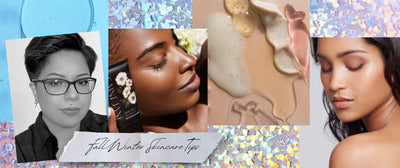
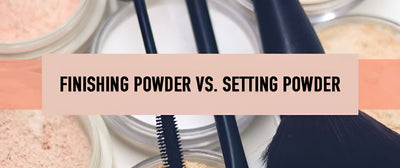
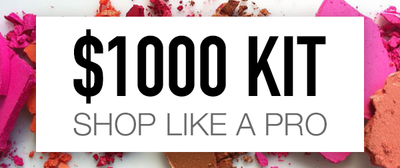
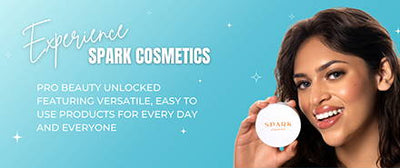
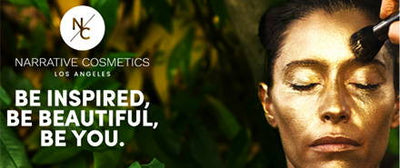




Leave a comment